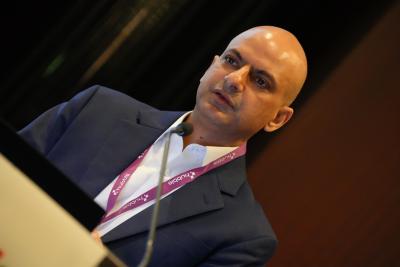Wealth management in the Middle East has much potential to mature, if the industry can achieve key goals such as fostering more dialogue with the regulator, finding and keeping competent people, implementing robust risk controls and selling solutions not products.
The Middle East and Africa saw relatively low growth in wealth in 2015, at 3% versus 4% in 2014, according to The Boston Consulting Group’s 2016 global wealth report. This was partly due to low commodity prices and political instability, leading to lower equity and bond markets.
The latest figures from Capgemini Financial Services Analysis, meanwhile, pinpointed a HNW population of 610,000, on the back of a meagre 0.1% in 2015. At the same time, the total amount of known wealth in the region rose by 0.9% to USD2.3 trillion.
Yet there is optimism, at least according to several heads of retail and private banking as well as senior executives in the Middle East wealth management community, at a roundtable hosted by Hubbis in Dubai.
Fundamentally, some participants said they believe there is increasing scope for the wealth management industry in the Middle East to thrive given the expected onshoring of wealth in the coming years.
With the advent of various global transparency initiatives, especially the Common Reporting Standard (CRS) – many clients who are aware there is nowhere to hide assets are likely to also realise that keeping money close to home has a lot of appeal.
While this trend is just emerging, it should pick up pace, said participants.
To be in a position to take advantage of this, roundtable participants highlighted some of their key priorities and initiatives – both for themselves and the wider industry – which they said are essential to move the sector forward.
1. Driving more industry dialogue and collaboration
The industry needs to build on the very recent initiative, in late 2016, to create the first wealth management working group within the UAE Banks Federation (UBF).
This positive step fills an important gap that also further highlights the relatively embryonic nature of the industry in the region. Retail and corporate banking, compliance, operations, for example, were among the various other key segments of the industry already represented within the UBF.
The aim now for senior management at the banks, is to drive more dialogue and engagement with the regulator.
This will ensure the various wealth management players can play a much closer and more active role in shaping regulations – rather than them being imposed on the industry.
2. Finding and retaining the right talent
Hiring and then keeping good people continues to be a struggle for most – if not all – wealth management firms in the Middles East.
The challenge for the industry is the fact that too many bankers move firms too frequently. Not only does this add unnecessary costs, but damages consistency in offerings and client engagement.
Retaining talent, therefore, requires a lot more time and attention from senior management to ensure more stability for the business.
Specific initiatives are needed to give bankers more incentive to be more loyal. These might include, for example, creating a more social environment, rewarding the best performers and paying more attention to the need to performance manage the rest, giving bankers flexibility to collaborate with each other when it comes to meeting revenue targets and servicing clients.
More broadly, ensuring a fair and transparent working environment will create more cohesion, to contribute to a greater likelihood of staff staying put.
3. A focus on selling solutions, not products
There continues to be an excessive focus on selling individual products and being focused on transactions, rather than selling investment solutions.
The problem, for example in Dubai, is compounded by the lack of regulatory controls over who can do the selling. This results in funds being sold to a wide variety of end-clients, often regardless of their levels of wealth, investment experience or current portfolio exposure.
On one hand, this is to be expected; Dubai’s wealth management industry is still relatively young – as is the Emirates Securities and Commodities Authority (SCA), the relevant regulator, at only around 15 years old.
Yet doing the wrong thing for clients has far-reaching reputational issues – not just for an individual institution, but it can tar the industry with the same brush.
Growing a wealth management business in this type of compliant and sustainable manner, therefore, is key.
4. Developing and deepening Shariah offerings
There is a pressing need within the Middle East wealth management sector to develop the Shariah offering.
For the time being, the range of Shariah-compliant products and solutions remains limited, especially in the funds space.
Further, those funds which do exist are relatively small, at around USD100 million.
As a result, expanding what’s available and adding more depth to the market is important in developing the Shariah platforms of the relevant financial institutions in this space.
The need for more qualified individuals with investment experience in the Shariah world is a key component of achieving this goal too.
5. Dealing with regulatory arbitrage
Driving more transparency across different jurisdictions, where possible, especially in terms of pricing, is an important way for the wealth management industry to try to eradicate mis-selling.
However, senior executive noted the challenges in achieving this, given the nature of regulatory competition which exists.
And this isn’t confined to the Middle East; Singapore, London and Switzerland, for example, all want to develop what they consider to be a conducive environment for their own banks to operate and compete.







